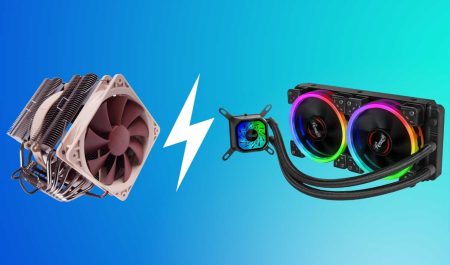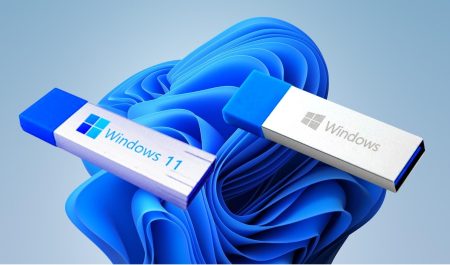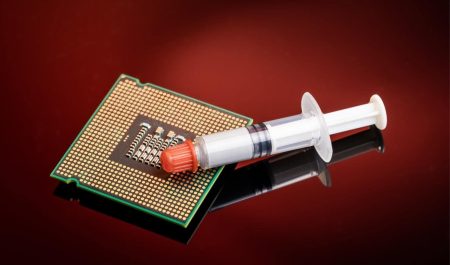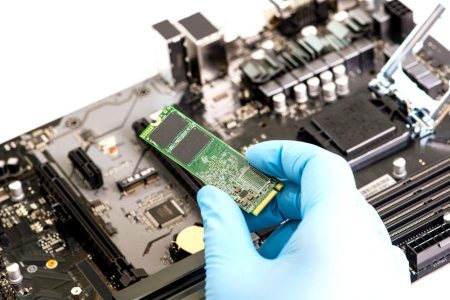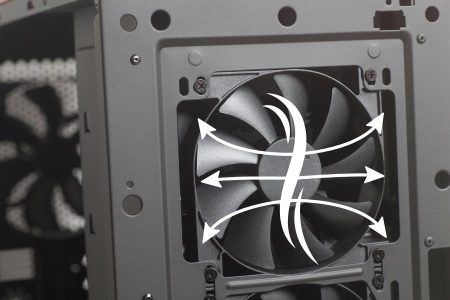When it comes to gaming PCs, RAM is crucial. The more memory you have, the faster your computer will be. This is because RAM allows your computer to store data that is currently being used. This is why it is critical for a gaming PC to have capable RAM that can perform explicit tasks. To determine which RAM best suits your gaming PC’s needs, you’ve come to the right place. Read on to learn about all the positive aspects before making a purchase decision. Our simple guide shows you how to choose RAM for a gaming PC by taking a few factors into account. How much intense gaming do you play? What types of RAM are supported by your motherboard and CPU? Finally, what is the best value for money?’
Because gaming computers use a lot more data at the same time than general-purpose computers, it is critical to have as much ram as possible. A few years ago, gaming computers came with 8 or 16 GB of RAM, but time has changed, games are becoming more realistic with supreme graphics, and PC hardware is on steroids with more and more power-packed into tiny silicon chips (CPUs and GPUs), and RAM (random access memory) has become a middleman for greater responsibility.
Due to the high demand for modern software and intensive rendering, it is now impossible to game on an 8 GB or 16 GB PC. To get started with modern gaming, you must have at least 64 GB of RAM. It is for not only faster access to your apps and smoother Gameplay, but also a requirement that you can always upgrade if you need a competitive advantage over other gamers and should think about increasing the clock speed and decreasing the latency to keep up with the competition.
It is recommended to determine the maximum amount of memory that your motherboard and CPU can support before determining how much RAM you require. Then total the amount of memory needed by all of the games you intend to play. You’ll almost certainly need at least 64GB of memory, but 128GB is ideal if you’re a serious gamer. To match your motherboard, there are new RAM generations after DDR3, you can now have selected the much faster types from DDR4 and DDR5.
Because most motherboards and CPUs now support both types, it’s mostly a matter of personal preference. In the understanding, the fact, that choosing the appropriate RAM for your gaming PC is critical to getting the most out of your system. Many gamers believe that more RAM is always better, but this isn’t always the case. You may require more or less RAM depending on your system’s hardware and gaming habits.
What Is The Purpose Of RAM On A PC? How Does It Advantage Gaming?
RAM, or Random Access Memory, is a critical component of any PC. It serves as a temporary storage area for data that is being processed by the CPU. This allows the CPU to access data quickly and eliminates the need to wait for the hard drive to spin around to the correct location. In addition, RAM also stores information that is being displayed on the screen. This helps to ensure that images and text are displayed quickly and without interruption.
Memory is important in a graphics-heavy computing environment because it stores the active data that is being used by the processor at any given time. When graphics-intensive tasks are running, the processor will access data from RAM more frequently than from other types of storage, such as a hard drive. This means that having more RAM will result in better performance when running these types of applications.
One way to measure RAM capacity is in megabytes (MB). A computer with 4GB of RAM can store up to 4 billion bytes of data. This may seem like a lot, but today’s high-resolution graphics files can easily exceed 1GB in size. So, if you plan on doing a lot of graphic editing or gaming, you’ll likely need more than 4GB of RAM.
What to look at when choosing RAM for a Gaming PC
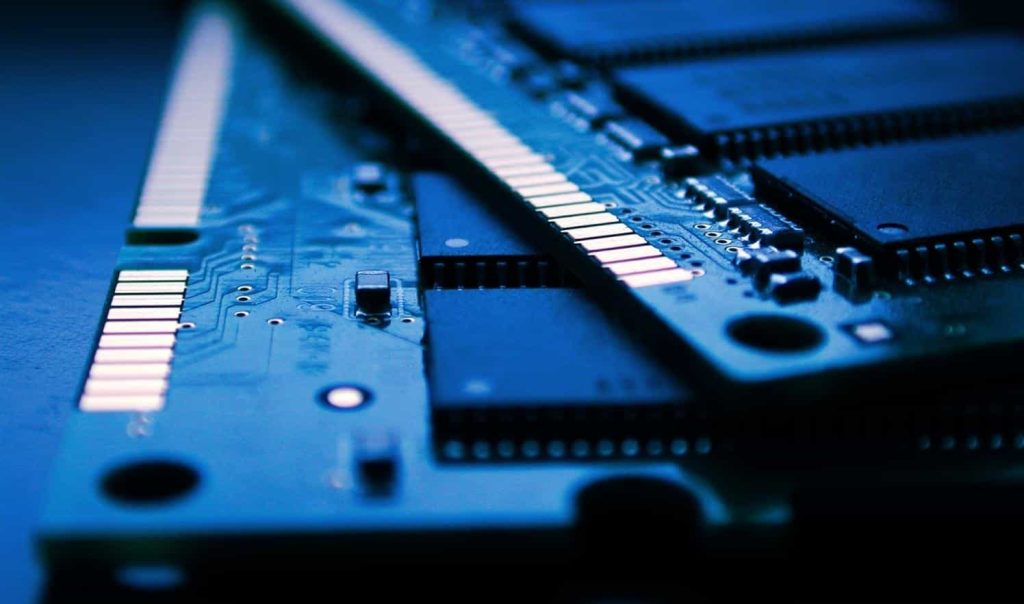
There are many factors to consider when choosing gaming RAM. The first is speed. Gaming RAM should be as fast as possible to avoid any lag or slowdown in the game. Latency is also important, as it can affect how quickly the game responds to your commands. Capacity is another consideration, as you may want enough RAM to run multiple games or applications at once. Make sure to choose a quality brand with a good reputation to ensure you get the best performance possible.
Important Factors to Consider When looking for Gaming PC RAM:
1- Generations of RAM
There are different generations of RAM, which are determined by the type of technology used to produce it. The first generation of RAM was produced in the early 1970s and used magnetic cores. The second thing is the generation of semiconductor memory chips which was introduced in the late 1970s. The third generation, which is still in use today, uses dynamic random access memory chips.
To select the best RAM for your gaming PC, you must first understand the various types of RAM available. New RAM generations are classified into three types: DDR3, DDR4, and GDDR5. The DDR3 RAM is the oldest type of RAM, and it is being phased out in favor of DDR4, while the latest GDDR5 is a type of RAM designed specifically for graphics cards, with hyper-fast memory access like a dedicated GPU, making system performance much much faster and smoother gameplay.
The next generation of RAM, which is expected to be released in 2023, will use phase-change memory chips. These chips are faster and more reliable than current chips and can store more data.
2- Clock-Speed and Latency of RAM
Clock-speed of RAM is the speed at which your computer reads and writes information to your computer’s memory. Most people think that the higher the clock speed, the faster their computer will be. However, this is not always true. When you are choosing a new RAM for your computer, you should pay attention to both its clock speed and its latency.
Latency is how long it takes for your computer to access the information that is stored in a particular row of memory, and the time it takes for the data to be returned. This latency is important when designing systems, as it can affect the overall performance of the system. If you have high latency, your computer will have to wait longer before it can access the information it needs, which will slow it down.
So when looking for gaming RAM make sure it has low latency and a faster read and write speed to make gaming much smoother. In conclusion, the clock speed of your RAM is important, but so is its latency. this is why you should try to find a balance between the two that works well for your needs.
3- Speed of RAM from Generation’s
RAM speed is one of the most important factors in a computer. The faster the RAM, the faster the computer can operate. In recent years, there have been great strides made in speeding up RAM with the release of the latest generations. However, even with these advances, there are still some things that can slow it down. One of the main factors that affect RAM speed is the type of memory used.
DDR5 is currently the fastest type of memory available. It has a clock speed of 4800Mhz to 8400Mhz MHz and can transfer data at speeds up to 51.2 GB/s. This is much faster than the DDR4 data access and transfer speeds of 4Gb to 16Gb and DDR3 speeds of 12800 MB/sec to 12.8 GB/sec.
4- Capacity of RAM
The capacity of RAM is something that is becoming increasingly important as technology advances. In particular, the capacity of RAM is something that will be worth taking into consideration. The reason for this is that the amount of data that is being processed by devices is increasing at a rapid pace. This means that the need for more memory to store this data is also increasing.
Another factor that needs to be taken into account when discussing the capacity of RAM and the trend towards miniaturization. This means that devices are becoming smaller and require less space for storage. This trend will likely continue in the years to come, which will impact the amount of RAM that can be housed in a given device. Overall, it is clear that the capacity of RAM will be an important factor to consider in the years ahead.
RAM Types and How They Affect Gaming
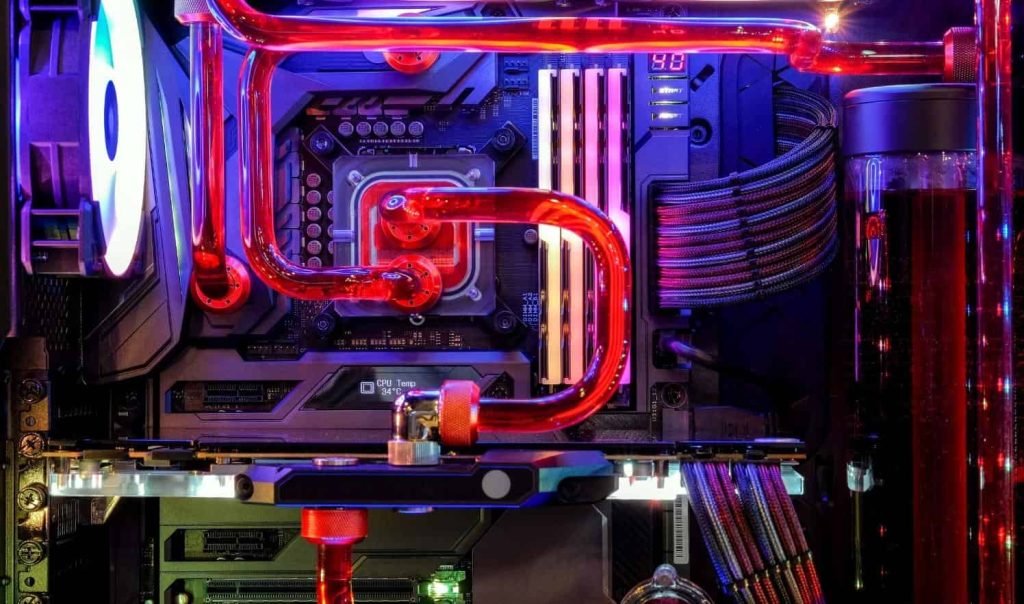
1- Module Type (SO-DIMM vs DIMM)
There are two main types of computer memory modules: SO-DIMMs and DIMMs. The main difference between the two types is their size: SO-DIMMs are smaller than DIMMs. SO-DIMMs are typically used in laptops, while DIMMs are used in desktops. However, there is some overlap: some desktop motherboards can use SO-DIMMs, and some laptops can use DIMMs.
The other key difference between SO-DIMMs and DIMMs is their connectors. SO-DIMM connectors are often referred to as “pancake” connectors because they look like pancakes stacked on top of each other. DIMM connectors are more traditional “slot” connectors. One other thing to consider when choosing a memory module is its speed.
Comparison of SO-DIMM vs DIMM
The two most common types are SO-DIMM and DIMM also have their pros and cons, but which one is better for you? Let us see.
- SO-DIMMs: are smaller than DIMMs, making them a good choice for laptops and other small devices. They also use less power, making them more efficient. However, they can only hold a limited amount of data, so they are not ideal for high-powered machines.
- DIMMs: are larger than SO-DIMMs, but they can hold more data. This makes them a better choice for high-powered machines. They also use more power, making them less efficient than SO-DIMMs.
2- Single-Sided Vs Double-Sided RAM
RAM can be single-sided or double-sided. In a single-sided RAM chip, the memory cells are located on one side of the chip, and the contacts are on the other side. In a double-sided RAM chip, the memory cells are located on both sides of the chip, and the contacts are on one side.
Single-sided RAM chips were more common in older computers because they were cheaper to produce. However, they have several disadvantages. First, they offer less storage capacity than double-sided chips. Second, they are less reliable because there is more chance for errors when data is being read from or written to a single surface.
Third, they run hotter than double-sided chips, which can lead to overheating problems. Most modern computers use double-sided RAM chips because they offer greater storage capacity and are more reliable.
Most Influence RAM Factors for Gaming?
There are many things to consider when choosing gaming RAM. The most important factors to look for are speed and latency. The higher the speed of the RAM, the faster your computer will be able to access it. Latency is how long it takes for the memory to respond to a request. The lower the latency, the faster your computer will be able to access it. In general, you want as much RAM as you can get your hands on, with a speed of at least 3000 MHz to keep up the FPS in almost all the intensive games.
1. Speed, Voltage, and Power
When it comes to RAM speed, there are three main factors that come into play: frequency, timings, and voltage. Frequency is how many times per second the RAM can send data. Timings are how long it takes for a particular action to happen. Voltage is how much power is supplied to the RAM.
The voltage and speed of a RAM only matter when you are a PC enthusiast, and working to boost extra performance out of your RAM. It is the most common procedure for processors, but RAM can do that too, for overall system performance. The throughput of the RAM can also be important, where voltage and power come into play to speed up the tasks.
Overclocking RAM can give your system a performance boost, but it’s important to make sure that you don’t exceed the maximum voltage for your type of RAM. Exceeding the maximum voltage can damage your RAM and even your processor.
Different types of RAM require different voltages to operate at their rated speeds. In addition to the proper voltage, you also need enough power to run your gaming rig. This is especially important when overclocking your components, as you’ll need more power to run them at higher speeds. If your power supply can’t handle the additional load, you’ll see system instability and possible damage to components.
2. CAS and CL Latency
Latency is the amount of time it takes for a particular request to be serviced. It is usually measured in milliseconds. The lower the latency, the faster the system is. One way to reduce latency is to increase the RAM speed.
3. Capacity to Load More Data
With the release of new games that require higher system specifications, RAM capacity has become an important factor for gamers. Having enough RAM allows games to run smoothly and eliminates the need to close other programs in order to play.
Currently, the most popular type of RAM for gaming is DDR5. This type can come in capacities of up to 64GB, which is more than enough for most gamers. However, there are some who may need even more than that. For those people, there are DDR4 modules that offer capacities up to 128GB.
RAM Compatibility with your Motherboard
Not all RAM is compatible with all motherboards. For example, DDR3 RAM will not work with a motherboard that only supports DDR2. It is important to check the specifications of both your motherboard and the RAM before making a purchase. The type of RAM that your motherboard supports can also be affected by the processor that is installed on it. Most newer motherboards support DDR5 RAM, which is becoming increasingly popular because of its high speed and low power consumption.
When looking for a new processor it is important to find one that will be compatible with the RAM and motherboard you currently have. The type of RAM you need is based on the processor socket type. If your motherboard has a Socket LGA 1150 then you will need DDR3 1600 MHz or 1866 MHz RAM. If you have a Socket AM3+ motherboard then you will need DDR3 1866 MHz or 2133 MHz RAM. Selecting the wrong type of RAM can cause damage to your processor and motherboard.
Another factor to consider when purchasing a new processor is the motherboard chipset. Some motherboards have an A88X, B85, H81, H87, Q87, or Z87 chipset which will require an FM2+ or LGA 1150 processor. Make sure the new processor you select is compatible with the chipset on your motherboard.
How Much RAM do you Need for Gaming?
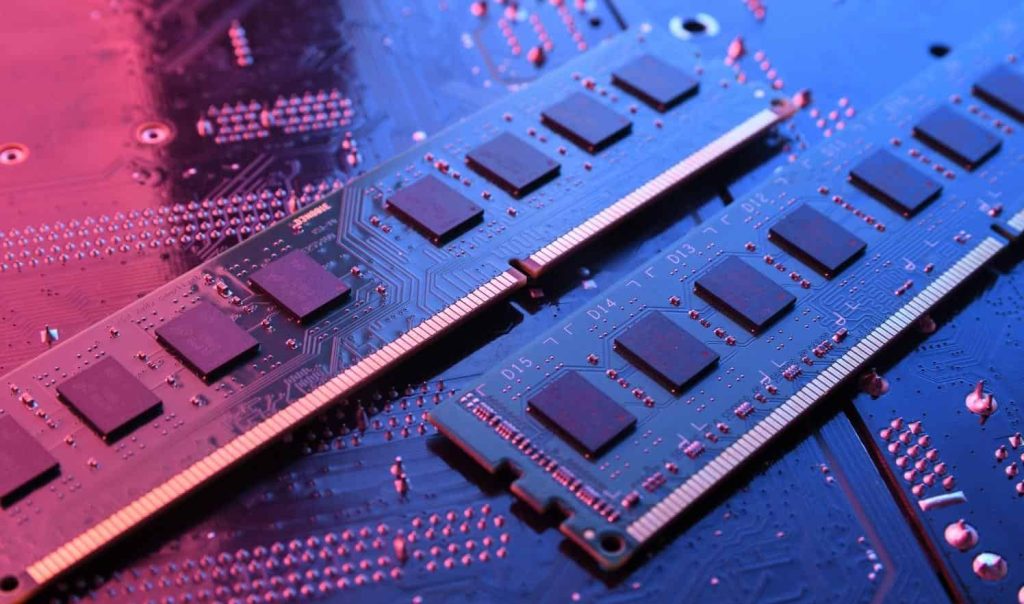
RAM is an important factor when it comes to gaming. So, how much do you need?
In general, 16GB of RAM should be enough for most gamers. However, if you’re planning on playing the latest games with all the bells and whistles turned on, then you may need more.
Some newer games require more than 32GB or even higher than 64GB of RAM in order to run properly. If your computer doesn’t have that much RAM installed, you may experience lag or even crashes while playing.
If you’re not sure how much RAM your computer has, check the system information section in Control Panel. There you should find the amount of physical memory (RAM) your computer has installed.
How Much Does RAM Affect FPS in Games?
RAM is a crucial part of any computer, and it’s especially important for gaming computers. So, how much does RAM affect FPS in games? There’s no simple answer to that question. The amount of RAM your computer has will definitely affect how well your games run, but there are other factors at play as well. Your graphics card, processor, and even your operating system can all affect how smoothly your games run.
That said, in general, the more RAM you have, the better your FPS will be. Most modern games require at least 16GB of RAM in order to run smoothly, and 64GB or more is recommended for the best performance. If you’re looking to get the most out of your gaming PC, make sure you have plenty of RAM installed!
Which Type Of RAM Is Best For Gaming?
RAM speed and type are important factors to consider when choosing the best components for a gaming PC. When it comes to RAM, there are three main types: DDR3, DDR4, and GDDR5.
DDR3 is the most common type of RAM and is compatible with most motherboards. It has a lower memory bandwidth than DDR4 but is also cheaper. DDR4 offers higher speeds and better performance than DDR3. However, it can be more expensive and may not be compatible with all motherboards. GDDR5 is used specifically for graphics processing and offers the highest memory bandwidth of all three types of RAM.
So which type of RAM should you choose for your gaming PC? If you want the best performance possible, go with a DDR4 or GDDR5 option. If you’re on a budget, DDR3 may be a better option.
How Much Ram Do I Need For High End Gaming?
PC hardware depends on overall development and depends on a variety of factors, including the specific games you want to play and your motherboard configurations. When you are building a high end gaming machine, things are super easy to recommend, as higher-end hardware levitates from lower-end and budget grades which manufacturers always praise for best-ever performance over their rivals, so this makes things simple and straightforward to know what are the top-level gaming specs for premium grade high-end gaming PC.
If you don’t get it, I have a proper suggestion to make your gaming PC complete with an absolute amount of RAM that will futUre proof your rig from upgrades and require no extra investment each year until the standards of basic gaming hardware changes, which will take at least the next five years.
So, the recommendation for a high-end gaming PC RAM are the following:
RAM Requirement For A Gaming PC With RTX 3090 And RTX 3090 Ti GPU:
According to our research and findings, a gaming computer with the beefy RTX 3090 Ti GPU will require 64GB of RAM in hardware to boost efficient performance in both VR and intense 8K gaming, as well as other tasks like editing. Because the GPU has 24GB GDDR6X VRAM for rendering, it must be paired with 64GB or more RAM, and if not, you should install at least 32GB to provide a smooth high-end gaming experience.
High End RAM Requirement For A PC With RTX 3080 And RTX 3070 Ti GPU:
- The RTX 3080 and RTX 3070 Ti have nearly identical performance and when prices drip, they also have similar terms in price point.
- If you have a high-end gaming PC with these graphics cards, you should pair 32GB of DDR5 RAM, which gives you an advantage in most FPS games and allows you to load games faster than before.
- However, the least recommended RAM is 16GB, but at 4K and VR, your PC will bottleneck due to insufficient RAM, which will stymie your experience.


